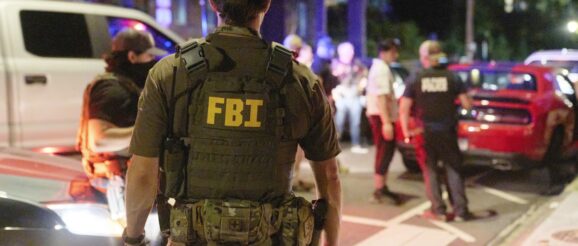Trump D.C. crackdown ‘problematic’

President Trump’s move to take over the Metropolitan Police Department (MPD) is “very problematic” and could tarnish police relationships in the community, warns retired U.S. Capitol Police officer Harry Dunn.
Trump announced on Monday that he’ll use the National Guard and MPD for at least the next 30 days to target “bloodthirsty criminals, roving mobs of wild youth, drugged-out maniacs and homeless people” in Washington, D.C. He said in his announcement that police officers will be allowed to do “whatever the hell they want.”
“The whole thing about doing ‘whatever the hell they want’ to do, as he put it, that’s very problematic for police,” Dunn, who ran for Congress as a Democrat last year, told Morning Edition. “It gives bad apples cover to do whatever they want. And it’s not helpful towards police relationships in the community.”
On Tuesday, dozens of National Guard troops deployed into Washington, D.C., though crime in the city reached a 30-year low last year, according to data released by the MPD and U.S. attorney for D.C. in January.
Dunn served the U.S. Capitol Police — a separate agency from MPD — for 15 years and retired in 2023, about two years after helping protect the Capitol on Jan. 6, 2021 from a violent mob of Trump supporters. Dunn says he’s worked with D.C. police officers who were not trained to handle certain situations that require more specialized approaches, like de-escalation and mental health crises.
The following exchange has been edited for length and clarity.
Interview Highlights

I dealt with several homeless people at the United States Capitol because it’s surrounded by about three shelters within a walking distance. And, yes, there’s not a lot of beds and a lot of the complaints that a lot of the homeless individuals we talked to, they said that they didn’t feel safe in those shelters. So it wasn’t just about getting off the street. They actually felt safer on the street than they did in some of those shelters.

The digital article was edited by Obed Manuel. The radio version was produced by Milton Guevara and Nia Dumas.
